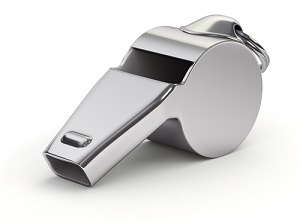John Barnett worked as a quality control manager at Boeing for 32 years before retiring in 2017. He was one of several Boeing employees to publicly raise safety and quality concerns about the company’s manufacturing processes and ultimately sued the company over allegations it retaliated against him for raising those concerns.
On March 9, 2024, in the midst of being deposed by Boeing’s attorneys in that action, Barnett was found dead in his car from an apparent self-inflicted gunshot wound. According to a New York Times article reporting on the apparent suicide, Barnett’s lawyer said revisiting his whistleblowing at the deposition was very upsetting: “It was really weighing on him, what was going on, and reliving all these things that had happened and the stress it had caused.”
Earlier this week, Barnett’s family sued Boeing in a wrongful death action, claiming it was responsible for his death. According to the family’s lawyers, Boeing exposed Barnett to a “campaign of harassment, abuse and intimidation intended to discourage, discredit and humiliate him until he would either give up or be discredited.” They further explained, “Boeing had threatened to break John, and break him it did.” The family is seeking compensation for backpay, mental anguish, emotional distress, a decade of lost potential earnings, health expenses, lost life insurance benefits, and bonuses.
Boeing has not yet responded to the suit but in a statement immediately following his death, the company said it was “saddened by John Barnett’s death and extend our condolences to his family.”
Before his retirement, Barnett raised various safety concerns to his supervisors but, according to his retaliation lawsuit, was ignored then harassed, and then retaliated against with inaccurate performance reviews and unappealing shift assignments. He also complained of being publicly blamed for delays that resulted in angry colleagues and not getting transferred to a different plant.
In their lawsuit, Barnett’s family is claiming he had PTSD and whether “Boeing intended to drive John to his death or merely destroy his ability to function,” his PTSD “was absolutely foreseeable,” as was his “unbearable depression, panic attacks, and anxiety, which would in turn lead to an elevated risk of suicide.” According to the family, “Boeing may not have pulled the trigger, but Boeing’s conduct was the clear cause, and the clear foreseeable cause, of John’s death.”
Barnett was not the only Boeing whistleblower to recently come forward with safety and quality concerns. As reported in Forbes, Constantine Cannon whistleblower partner Gordon Schnell noted the fact that so many Boeing whistleblowers have come forward underscores the need for a stronger, protected channel for aviation whistleblowers to report their concerns to the government: “The road of a whistleblower is extremely difficult . . . . A well-established whistleblower program would provide a safer and more effective avenue for addressing concerns within the aviation industry.”
Barnett also was not the only recent whistleblower to suffer a tragic death. Suchir Balaji, the 26-year-old software developer turned Open AI whistleblower, also died this past year. His family has also recently been vocal in the news about his death and subsequent investigations that determined it was a suicide.
If you are thinking about blowing the whistle, there are organizations available to help navigate the challenging, long, and winding road ahead. State and federal laws are available to protect you from retaliation, and mental health resources are offered for life-saving support, including the 988 Suicide and Crisis Lifeline. Whistleblower attorneys can also help find the path that makes most sense for your particular needs and often operate on a contingency basis so there is no out-of-pocket cost involved. The important thing for whistleblowers to realize is you do not need to go at it alone.
Read Boeing Whistleblower’s Family Sues Jet Company Over His Death at constantinecannon.com






Leave A Comment